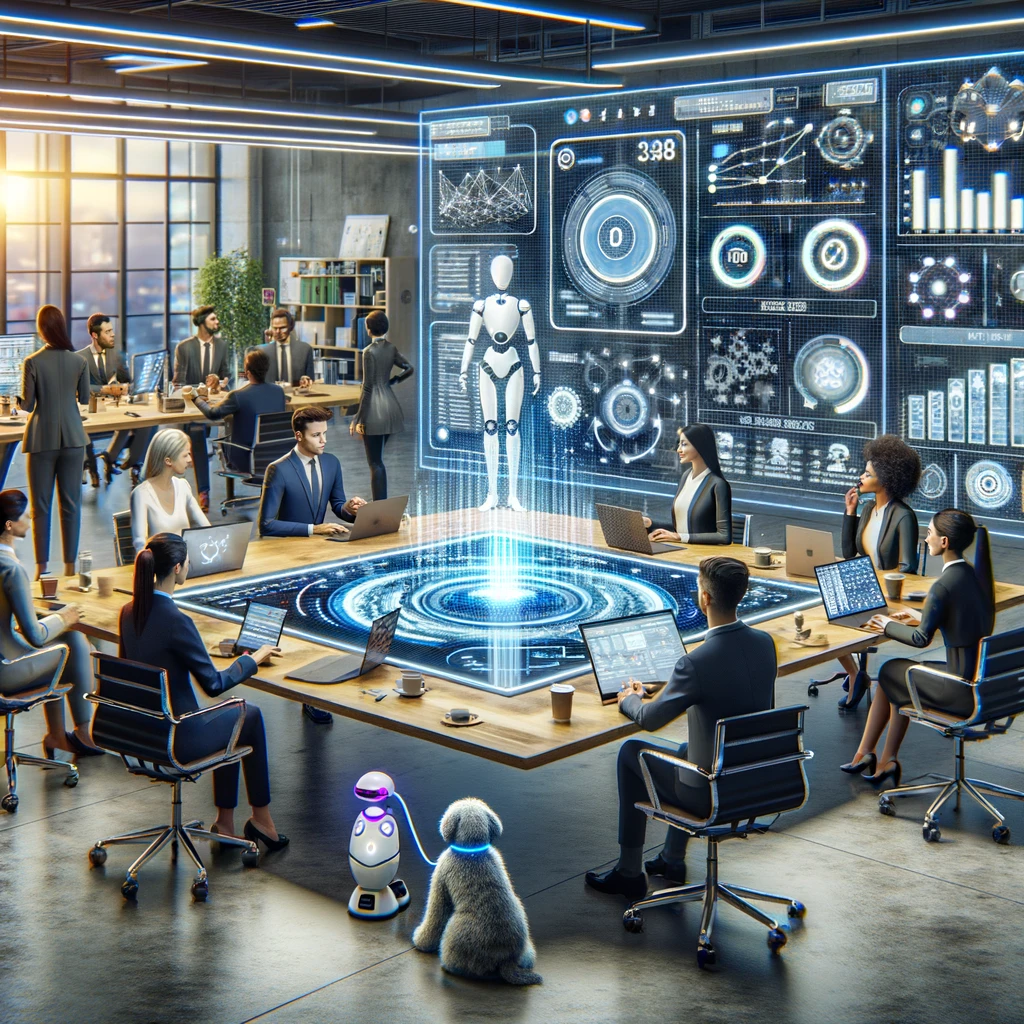In the ever-evolving landscape of project management, the integration of Artificial Intelligence (AI) stands at the forefront, heralding a new era of efficiency and innovation. This transformative technology is not merely a trend but a fundamental shift in how projects are planned, executed, and managed. Yet, as we navigate through this change, the question arises: Is AI in project management a game changer or a game over?
AI in Project Management: The Agile Methodology's New Ally
First and foremost, AI's role in project planning and execution cannot be overstated. With the adoption of agile methodology on the rise, AI enhances this flexible and iterative approach by providing data-driven insights, automating repetitive tasks, and facilitating better decision-making. This synergy between AI and agile practices leads to more dynamic and responsive project management, where adjustments can be made in real-time, ensuring projects stay on track and within scope.
Navigating the Waters of Risk Management
One of the paramount benefits of AI in project management is its unparalleled capability in risk management. AI algorithms can predict potential risks and propose mitigation strategies long before they become apparent to the human eye. This proactive approach to identifying and addressing risks ensures that projects are not only completed on time but also within the allocated budget, significantly reducing the likelihood of scope creep.
The Double-Edged Sword of Stakeholder Engagement
AI's impact on stakeholder engagement presents a nuanced picture. On one hand, AI tools can enhance communication with stakeholders by providing them with real-time updates and insights into the project's progress. On the other hand, the reliance on technology necessitates a careful balance to ensure that the human element of project management is not lost. Effective stakeholder engagement requires a blend of AI efficiency and personal touch to address concerns and expectations adequately.
Optimizing Resource Allocation and Workflow
Efficient resource allocation and workflow optimization are where AI truly shines. By analyzing vast amounts of data, AI can optimize the use of resources, from manpower to materials, ensuring that projects utilize available assets most effectively. Furthermore, AI can streamline workflows, identifying bottlenecks and suggesting improvements, thus enhancing overall productivity and reducing the chances of project delays.
The Future of AI in Project Management: Innovation or Disruption?
As we look towards the future, the integration of AI in project management is poised for exponential growth. The potential for AI to transform project lifecycles, boost team collaboration, and enhance milestone tracking is immense. However, this innovation comes with its set of challenges, particularly in the realms of change management and ethical considerations. Ensuring that AI tools are unbiased and that their use aligns with ethical standards is crucial to avoid potential pitfalls.
Conclusion: Embracing AI with a Balanced Approach
In conclusion, AI in project management is not a question of game changer or game over but rather how we can harness this technology to complement our human skills and expertise. By integrating AI with agile methodology, focusing on risk management, ensuring effective stakeholder engagement, and optimizing resource allocation and workflow, we can navigate the challenges and opportunities that AI presents. The future of project management with AI is bright, provided we approach it with a balanced and ethical perspective, ensuring that the technology enhances rather than replaces the human element of project management.
